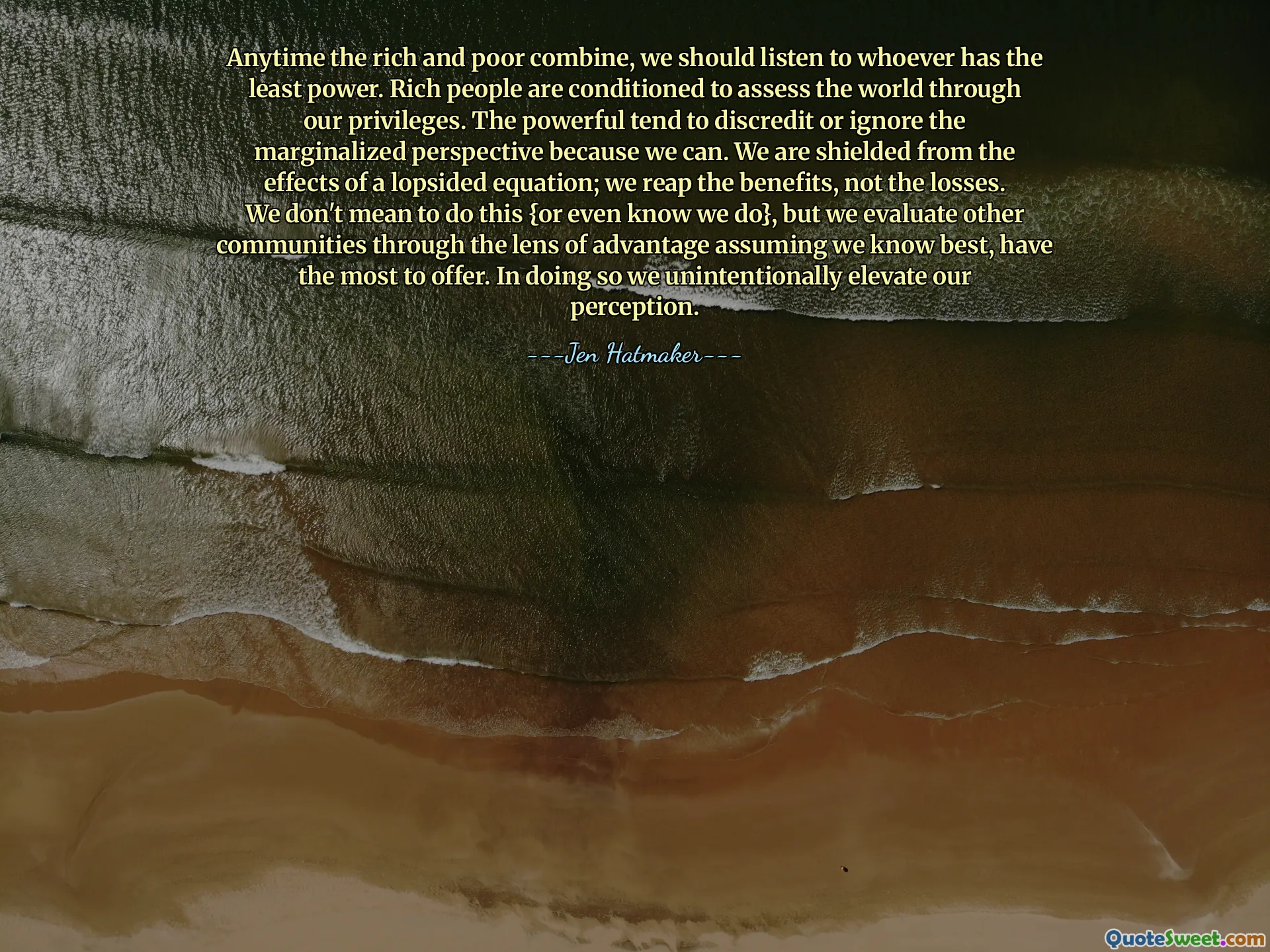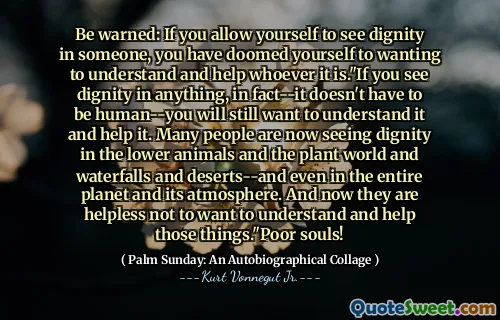
Anytime the rich and poor combine, we should listen to whoever has the least power. Rich people are conditioned to assess the world through our privileges. The powerful tend to discredit or ignore the marginalized perspective because we can. We are shielded from the effects of a lopsided equation; we reap the benefits, not the losses. We don't mean to do this {or even know we do}, but we evaluate other communities through the lens of advantage assuming we know best, have the most to offer. In doing so we unintentionally elevate our perception.
This quote highlights the ingrained dynamics of privilege and power, emphasizing the importance of listening to marginalized voices when different social classes come together. It prompts us to reflect on how societal conditioning influences perceptions, often leading those with privilege to dismiss or underestimate the experiences of less powerful groups. The underlying message is that true understanding and meaningful change arise when those in positions of privilege consciously attune themselves to perspectives rooted in hardship and disenfranchisement. Recognizing that benefit often blinds us from grasping the reality of others is crucial for fostering empathy and equity. It challenges individuals, especially those with privilege, to examine their own biases and to learn how to elevate the voices that are usually overshadowed. This awareness is vital for creating inclusive communities rooted in mutual respect and understanding, where every voice is valued equally. In essence, the quote urges us not only to acknowledge the disparity but also to actively listen and learn from those marginalized, especially in moments of collaboration or conflict. Only through this intentional listening can societal stereotypes be dismantled, and genuine solidarity be built, ensuring that no one's experience is dismissed due to their lack of privilege.










